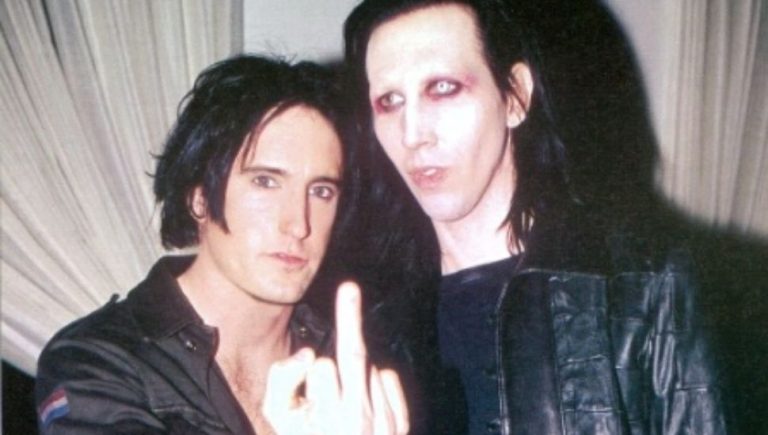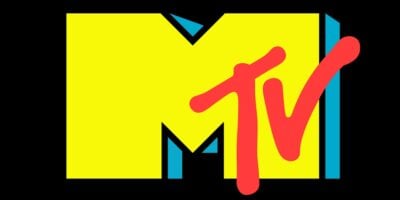Content warning: this article about Trent Reznor and Marilyn Manson discusses sexual assault.
If you or someone you know is affected by the following story, you are not alone. To speak to someone, you can call Lifeline on 13 11 14, or 1800 RESPECT on 1800 737 732.
Trent Reznor has issued a statement addressing his relationship with collaborator Marilyn Manson in the wake of the recent allegations of abuse that have unfurled over the past week.
The statement was released in response to a passage that involves both Reznor and Manson excerpted from Manson’s 1998 autobiography, The Long Hard Road out of Hell. The passage in question details a harrowing incident in which Manson and Reznor allegedly physically and sexually assaulted an intoxicated woman in the 1990s.
[CONTENT WARNING: SEXUAL ASSAULT] Since this is going around: In the story, Reznor and Manson try to make two women pass out. One passes out. The other is conscious, but still got the full glass of tequila; they tie her up and blindfold her before doing the above stuff. pic.twitter.com/wKE7dQ1lsR
— Jude Ellison S. Doyle (@sadydoyle) February 2, 2021
Love Music?
Get your daily dose of metal, rock, indie, pop, and everything else in between.
Reznor has since taken to social media to decry the excerpt as a total fabrication. “I have been vocal over the years about my dislike of Manson as a person and cut ties with him nearly 25 years ago,” he wrote. “As I said at the time, the passage from Manson’s memoir is a complete fabrication. I was infuriated and offended back when it came out and remain so today.”
Trent Reznor signed Marilyn Manson to his Nothing Records imprint in the early 90s and went on to produce the band’s 1994 debut record, Portrait of an American Family.
Over the years, Trent Reznor, has made it very clear that he and Manson no longer had a relationship, as Pitchfork notes, in an interview with Mojo in 2009 Reznor admitted, “He is a malicious guy and will step on anybody’s face to succeed and cross any line of decency. Seeing him now, drugs and alcohol now rule his life and he’s become a dopey clown.”
In an interview with Zane Low in 2017, Manson claimed that Reznor reached out to him via email in an attempt to patch things over. “He’s the one who’s actually sent me an email, we had sort of mended ways after a long time through [Manson collaborator and producer] Tyler Bates strangely enough,” Manson shared.
“He goes and he said in the email something along the lines of, ‘It really pisses me off that music’s not dangerous anymore and it reminds me of how great you were and I was and the time, the era.’”
On February 1st, Thirteen and Westworld actress Evan Rachel Wood released a statement, identifying Marilyn Manson as the man who groomed and physically, sexually and emotionally abused her.
“The name of my abuser is Brian Warner, also known to the world as Marilyn Manson,” Wood wrote. “He started grooming me when I was a teenager and horrifically abused me for years.
“I was brainwashed and manipulated into submission. I am done living in fear of retaliation, slander, or blackmail. I am here to expose this dangerous man and call out the many industries that have enabled him, before he ruins any more lives. I stand with the many victims who will no longer be silent.”
Wood’s statement prompted four other women to come forward, detailing their own alleged abuse experienced at the hands of Manson. Incidents that spanned from rape, sexual assault and psychological abuse.
View this post on Instagram
Following the abuse allegations coming to light, Manson released a brief statement, essentially denying all claims made against him. Whilst Manson’s label, Lomo Vista, announced that they would cease working with the artist.
“Obviously, my art and my life have long been magnets for controversy, but these recent claims about me are horrible distortions of reality,” he wrote in an Instagram post. “My intimate relationships have always been entirely consensual with like-minded partners. Regardless of how — and why — others are now choosing to misrepresent the past, that is the truth.”


































